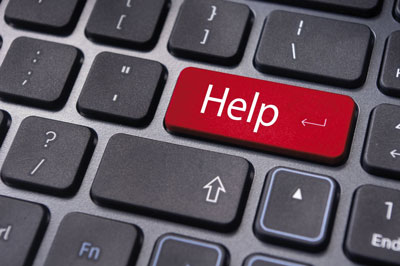OU News
News from The Open University
- Home
- E-therapy: a technological step too far?
E-therapy: a technological step too far?
Posted on • Health

Talking therapies are psychological therapies where people talk to a professional about their thoughts, feelings and behaviours. They aim to give people a safe time and place to talk to someone who won’t judge them, help them make sense of what is happening, assist them to resolve complicated or unhelpful feelings, and to support them to overcome or change them.
People who are distressed by difficult events in their lives and people with a range of mental health problems can benefit from certain types of talking therapy, and different approaches tend to suit different people.
 As the name suggests, these therapies involve a person talking to a therapist, face to face. But can they also be delivered digitally, or does this defeat the object of therapy?
As the name suggests, these therapies involve a person talking to a therapist, face to face. But can they also be delivered digitally, or does this defeat the object of therapy?
OU Senior Lecturer and Mental health expert Dr Mathijs Lucassen explains:
What are e-therapies?
E-therapies are mental health interventions that are delivered electronically.
The amount of therapist support a person would receive in an e-therapy varies considerably. At one end of the spectrum, there are e-therapies which involve a healthcare professional using technology to overcome the distance between a therapist and client, such as moderated chat rooms and video conferencing. At the other end of the spectrum are e-therapies that are pure self-help that are delivered without any therapist support.
E-therapies – they’re new, right?
With self-help therapy, using technology to treat mental health problems is not new. In the past, people have used cassettes and video tapes to deliver psychological therapy. Researchers first attempted to develop a prototype of computerised therapy in the 1960’s with ELIZA. This aimed to simulate a therapeutic conversation using a script based on person-centred therapy, or Rogerian psychotherapy, an empathetic approach that aims to empower and motivate the client in the treatment process.
Since then, the demand for psychological therapies for mental health problems has continued to grow. But at present the availability of clinical services is limited, there are not enough trained practitioners to deliver talking therapies, and more people are now really interested in using online interventions (Stasiak et al., 2015).
Are there any e-therapies available on the NHS?
Since 2000, many people have benefited from e-therapies. They have become increasingly sophisticated and accessible, with several programmes being freely available across the country.
In England, the NHS now provides almost 50 different e-therapies – 13 different web apps and 35 different smartphone apps – for depression, anxiety or stress-related problems (Bennion et al., 2017). Usually these are only provided after someone has been referred by a healthcare professional, such as a GP. A number of e-therapy programmes can effectively treat depression and anxiety in adults, and several cognitive behavioural e-therapy tools are now recommended by the National Institute for Clinical Excellence (NICE).
E-therapies provided by the NHS include:
- Beating the Blues – an e-therapy developed in the UK that has been recommended by NICE and can be prescribed by a mental health practitioner, mostly GPs
- moodgym – an e-therapy developed in Australia but freely available across the world in six languages, including English
- Big White Wall – an e-therapy developed in the UK which consists of online forums with tools, courses and one-to-one messenger-based therapy with a practitioner. It is available when the provider (for example, an NHS Trust) pays a licence fee.
What about e-therapy and support via a mobile phone?
Mobile phones are often used to deliver e-therapy and support people with mental health problems. For example:
- Text messaging – including to deliver treatment for people who hear voices (Ben-Zeev, 2012)
- Therapists or practitioners can deliver treatment by talking to people on their mobile phone
- Text messages and reminders can help to ensure people attend their treatment sessions or complete their therapy ‘homework tasks’.
Are computer games used as e-therapies?
Computer games are played for fun by people across the globe, but they can also be used by healthcare professionals and teachers to deliver treatments and for educational purposes.
Serious games and gamification (game-like elements used in an intervention on computers and/or phones) both seek to use games to educate and positively change patterns of experience and/or behaviour (Fleming et al., 2017).
Games are already being used as e-therapies. These include:
- Using Wii Sports, Wii Fit or Wii Fit Plus as exercise games (or exergames) to treat depressive symptoms in older adults (Li et al., 2016)
- Virtual reality interventions to treat adults diagnosed with post-traumatic stress disorder (PTSD) and phobias (Li et al., 2014). One of these is called Virtual Iraq, and helps service men and women with PTSD in their recovery (Rizzo et al., 2013)
- SPARX, a serious game to treat depressive symptoms in young people in New Zealand.
As explained above, e-therapies are providing another way to help people with mental health problems – those seeking support can access therapy or counselling at the click of a button. This means accessing help can be far cheaper and quicker than face to face visits, can reach many more people, and there may be less stigma associated with it. More e-therapies are being developed, tested and provided to people all the time.
And whilst they clearly won’t replace face-to-face talking therapies, they offer a useful treatment alternative and have a clear impact on people, especially for those who will not access help otherwise.
Find out more
Find digital tools to help you manage and improve your health